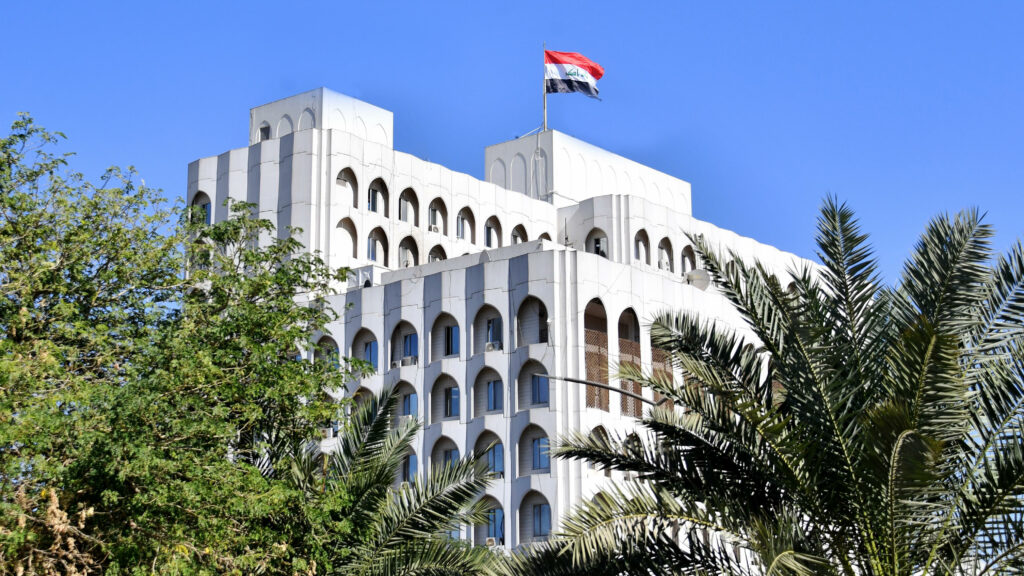Iraq Welcomes Iran-U.S. Talks in Oman, Urges Diplomatic Solutions for Regional Stability
Baghdad expressed its hopes that the ongoing discussions would soon yield tangible results that reduce tensions and help rebuild trust, stating that such outcomes would serve the interests of the region’s peoples and contribute to enhanced peace and security.

ERBIL (Kurdistan24) — Iraq’s Ministry of Foreign Affairs on Saturday welcomed the commencement of Iranian-American talks hosted by the Sultanate of Oman, applauding the “positive indicators” emerging from the first round of dialogue between the two sides.
In an official statement, the ministry reaffirmed Iraq’s unwavering support for diplomacy and negotiated solutions as the optimal path to resolving disputes and promoting both regional and international stability.
“The Republic of Iraq welcomes the start of Iranian-American talks in the brotherly Sultanate of Oman and values the positive indicators resulting from the first round of dialogue between the two parties,” the statement read.
Baghdad expressed its hopes that the ongoing discussions would soon yield tangible results that reduce tensions and help rebuild trust, stating that such outcomes would serve the interests of the region’s peoples and contribute to enhanced peace and security.
Tensions between the United States and Iran have shaped much of the geopolitical landscape in the Middle East over the past two decades, particularly following the U.S. withdrawal from the Joint Comprehensive Plan of Action (JCPOA) in 2018—a move driven by concerns over Iran’s regional activities and non-compliance with the spirit of the agreement. Efforts to revive the nuclear deal and mitigate broader hostilities have seen intermittent progress, with Oman—a neutral Gulf state with strong diplomatic ties to both Washington and Tehran—frequently serving as a discreet intermediary.
The latest round of discussions signals a renewed willingness from both nations to address long-standing grievances through backchannel diplomacy. Iraq, positioned at the heart of the region and often caught in the crossfire of regional rivalries, has consistently advocated for peaceful solutions and regional de-escalation, seeing stability as key to its own political and economic recovery. This position is further reinforced by the presence of Iran-backed armed militias operating within Iraq, which pose a serious risk of drawing the country into any potential military conflict between the United States and Iran. For Baghdad, preventing such a scenario through dialogue is not only a diplomatic priority but a national security imperative.
The Iraqi Foreign Ministry’s statement aligns with its broader foreign policy strategy of promoting dialogue over confrontation, particularly in light of recent regional crises, including heightened Israeli-Iranian tensions and ongoing instability in neighboring Syria and Lebanon. Given the deep-rooted connections between Iran and several armed factions in Iraq, the Iraqi government views the peaceful resolution of the Iranian nuclear issue as critical to shielding the country from external conflicts. Any escalation could mobilize these militias, plunging Iraq into a proxy war that would threaten its fragile stability and undermine years of post-conflict reconstruction efforts.
As discussions continue in Muscat, Iraq’s endorsement highlights the importance of Arab and regional actors in fostering diplomatic bridges between global adversaries.